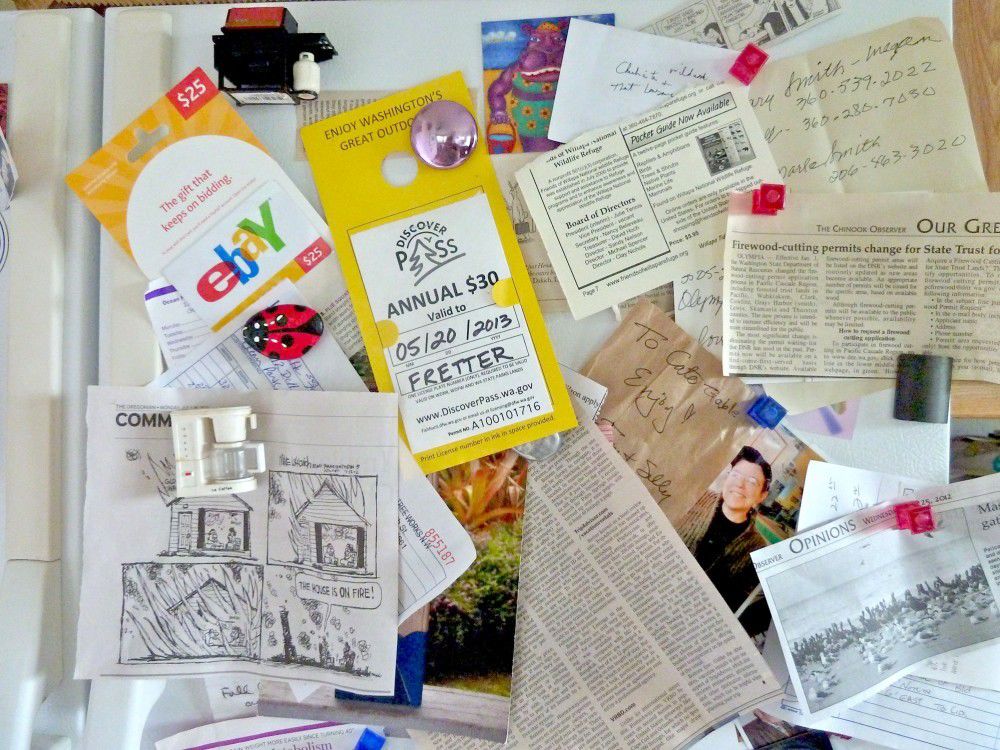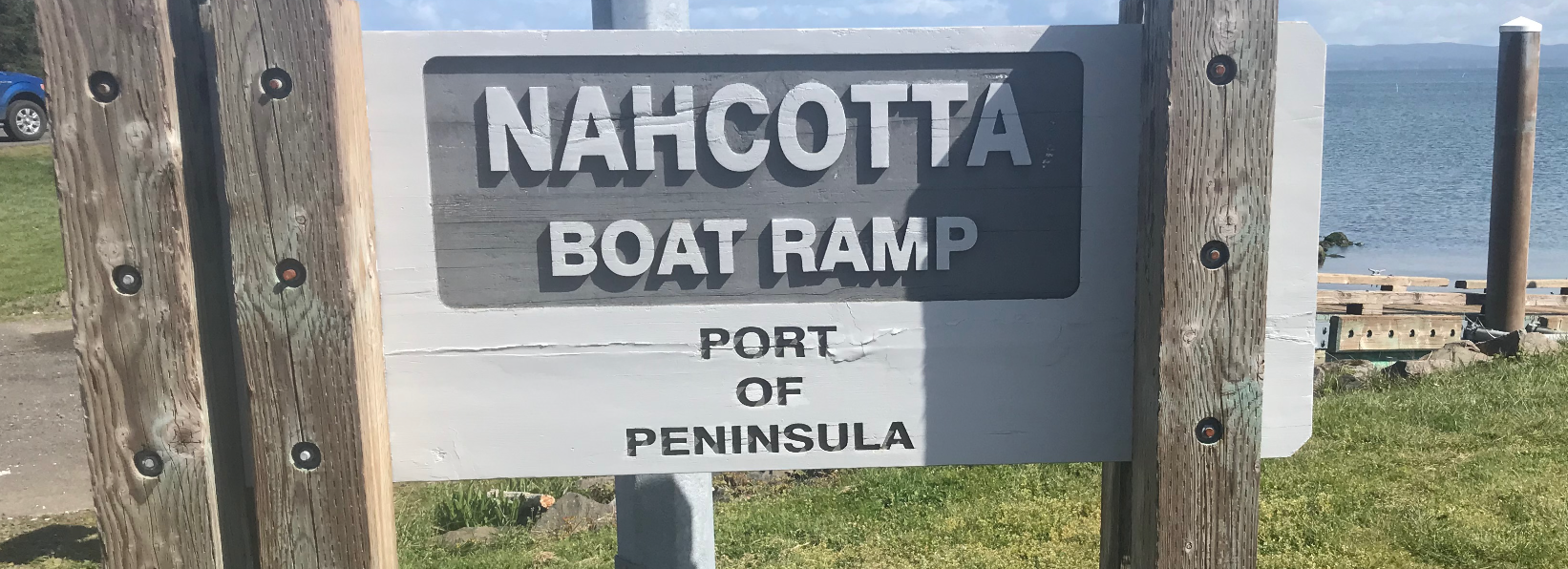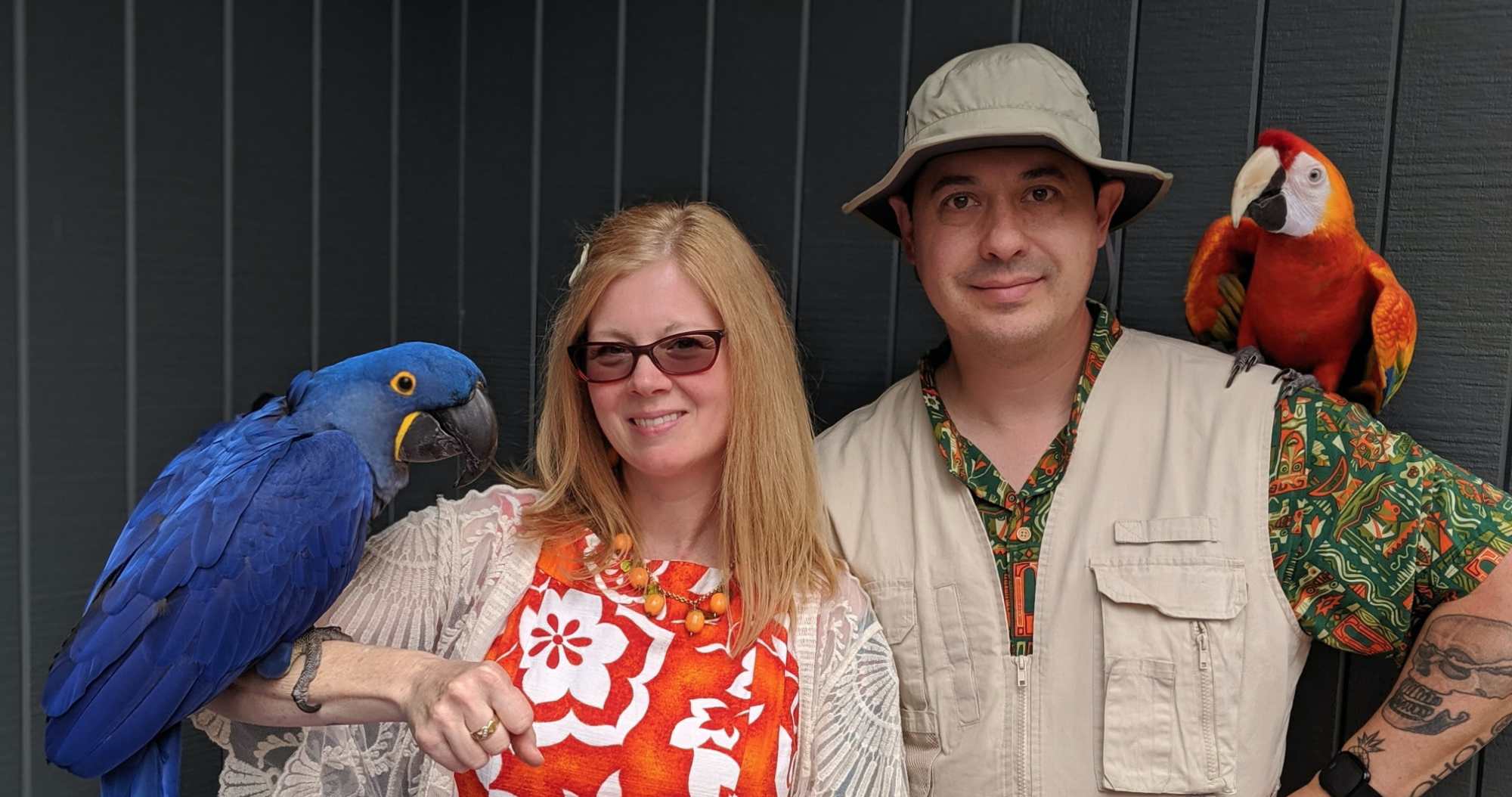Refer Madness
Published 5:00 pm Monday, July 30, 2012

- <p>A portion of the author’s refrigerator shows a diverse and some might even say “cluttered” range of interests.</p>
Humorist Joel Stein, in a recent Times article, put the spotlight on a topic Ive been mulling over for months: why do we put what we put on our refrigerators? And, more to the point, how can I stop being a clutterbug?
UCLA anthropologist Jeanne Arnold, in a recent 11-year study of 32 middle-class homes in southern California, found that the average family had 52 items on the refrigerator. Im still counting mine. Every four or five months, in desperation, I clear everything off, stuff it in a manila envelope, date it, and generally never refer to it again. However, while these scrips and scraps adorned my fridge, they seemed too critical to part with.
Raymond local and professional organizer Senja Antilla has the right attitude for her chosen field. Im opposed to those magnets on my refrigerator. I dont put anything on mine. It becomes clutter. People have a tendency to just keep adding things. I mean, one favorite photo, maybe.
But if its such a great picture, frame it and put it on the wall.
Senja (pronounced Sen-jay) truly practices what she preaches, although her self-proclaimed gypsy lifestyle has helped too. I was born and raised in Raymond but Ive lived all over the world. Then she ticks off Hawaii; Japan; Florida. I dont buy books. I borrow them. Im more of a minimalist. I think everything around you should feed you instead of draining you.
Increasingly Salient Storage Crisis
I agree with everything she says, in theory. Putting those values into practice is whats hard. But its not just me. In Arnolds study, her team looked at how families use their whole property inside and out. They found that Americans are experiencing an increasingly salient storage crisis. They found that 75 percent of households use their garage for storage no car in sight.
Although a recent bet with my sister got me to freeing up space in the garage, I have to admit that I see the garage as too valuable for a car. I mean really. Heres another whole place for whatever needs to be out of the rain and wont fit in the house.
But theres the rub. If theres not room in the house, do we really need it? Senja pushed me a little on this point, I find that most things that go in the garage are things that have been updated. You get a new toaster oven, but you cant quite throw away that old one the oven works; only the toaster part is kaput. Into the garage.
New television in the rec room? The old one goes well, maybe into the bedroom. (78 percent of families have a television in the bedroom; probably a bad omen for our ever-decreasing U.S. birthrate.) Or put it next to the chair that doesnt recline anymore, also in the garage. We just moved into our living room, at considerable physical effort, a new used sofa. The old futon sofa went wait for it into the garage.
When Senja helps clients who are ready to sort through things, she often finds that they are embarrassed when they return to objects that have been faux-discarded in the garage. Theyll say I dont need this or Why didnt I just throw this broken thing away in the first place?
I have two old laptop computers, even though I know the psychology behind keeping them is because I was part of an electronic waste research project. (It is the following: I paid top dollar for it and even though its obsolete now, Im not giving it away.)
Throwaway culture
And, of course, you cant get anything repaired. Or, even if you can find a (generally ancient) repair technician, the costs are more than replacing the item. Senja suggests that instead of putting something in the garage, when you identify an item you no longer use, put it into a box. When the box is full, take it to Goodwill, or give it away.
When you look through your closet and you pull something out and say, Ill never wear that its terrible, dont put it back in your closet!
I know none of this is a surprise to anyone. Senja said, I think it was obvious several years ago that the garage was transitioning to a storage space. I can understand why someone did research to show these numbers. Almost everyone is cluttered at this point.
Hoarding shows on television have picked up on the obsession. Animal hoarding is in the news. Ive had the opportunity to work with hoarders, Senja said, but I dont work with them very long because its like a disease. You dont really make much progress. I cant help someone who wont let me throw away a plastic bag.
Some scientists think hoarding and over-the-top collecting is actually genetically based. Mayo Clinic says, Other [hoarding] triggers and risk factors include genetics, stressful life events, age and perfectionism.
Senja said, Many of my clients will say My mother had a problem with paper and I have a problem with paper I dont know how to manage it. Or My mother kept everything and now my house looks like hers. I cant help it.
Help
There is no sensible rationale behind clutter but there is an emotional component. Arnolds study confirms that objects are stand-ins for us; we identify who we are by having things; and the house and its objects are symbols of where we stand in society.
Many homeowners in the study remarked on how proud they were to come home to a neat front yard with a tidy lawn and flowers. But the children were discouraged from playing there.
Arnolds team discovered that people love to spend money on backyards (most highly valued when they provided privacy), grills and pools. Yet 75 percent of homeowners didnt have any leisure time to use them. As Arnold put it, Dual-wage earner families in our study struggle to find enough time to enjoy the home they worked so hard to buy. She calls outdoor leisure time a fading commodity. (See her conference report at http://tinyurl.com/cmguuap.)
My soon-to-be 90-year-old mother frets about leaving home because the lawn needs to be watered. Its got a couple really dry spots. The lawn is a tyrant, not a pleasure.
Our incredible American wealth was supposed to give us time to enjoy ourselves, to free us up to spend time with friends and family. Instead, we are trapped in a cycle with things which must be purchased, stored, fixed, and cleaned.
Now Im not saying I want to head to Tasmania with a backpack, but I would like to be able to see the front of my refrigerator.
Senja Antilla can be contacted at 360-580-5036; or see her website: http://organize-it.typepad.com. For comments or story ideas, contact categable@aim.com.





